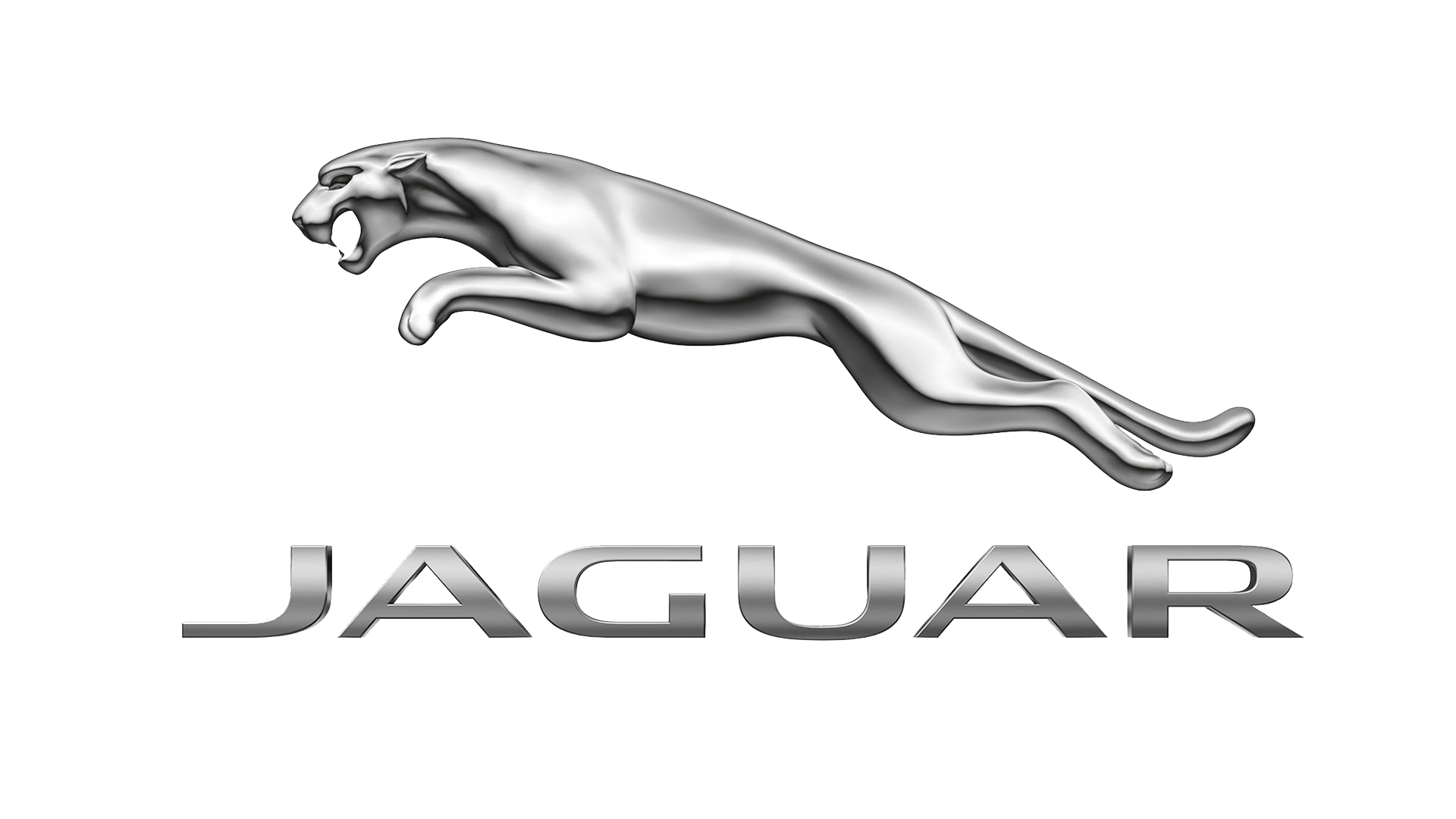In the world of cars, few rivalries are as fierce as Nissan vs Suzuki. It's high time we compare and contrast these two iconic car brands. In this article, we're putting these two big car brands head-to-head to find out which one comes out on top. From engines to safety, we are going to break it down for you piece by piece until we find out which one truly reigns supreme. So, fasten your seatbelts, and let's get ready to rumble!
best comparison between Toyota and Mazda is also provided by us
Nissan Vs Suzuki
Nissan was founded in 1933 as a result of a merger between two Japanese automobile companies named Kwaishinsha and Jitsuyo Jidosha Co. Ltd. The name 'Nissan' was given in 1934, derived from the Japanese words "Ni" meaning sun" and "san" meaning "product" or "production." Suzuki was founded in 1909 as Suzuki Loom Works by Michio Suzuki.
Even though starting as a loom manufacturer, later, in 1937, it diversified into producing small cars and trucks. However, The company's name was changed to Suzuki Motor Corporation in 1954. Comparing Nissan and Suzuki is like comparing two great athletes in their respective sports. Both have their strengths and imperfections, and it's hard to figure out which is better overall.
Nissan has been manufacturing electric cars since 1947 and was the first to introduce a mass-market electric car, the Nissan Leaf, in 2010. Suzuki has been the leading manufacturer of small cars in Japan for over 30 years and is all about making compact, fuel-efficient rides that can easily zip through the city streets. This competitiveness is presented as a table
|
Features |
Nissan |
Suzuki |
|
Brand reputation |
Known for innovation and reliability |
Known for reliability and affordability. |
|
Price range |
$15,000-$1000.000 |
$10,000-30,000 |
|
Target market |
Upscale market |
Budget market |
|
Performance |
Powerful engine and sporty performance |
Most refined engine and reliability |
|
Fuel Efficiency |
Slightly higher than Suzuki |
Lower than Nissan |
|
Safety features |
Moderate to high end |
Moderate safety features |
|
Interior features |
Modern and Tech oriented |
Simple and functional to luxurious |
|
Customer service |
Responsive and helpful |
Responsive and personalize |
|
Resale value |
High |
Moderate |
One of the main differences between Nissan and Suzuki is the size and type of vehicles they offer. Nissan and Suzuki are popular car brands that produce reliable and innovative vehicles. With their first mass-market electric car, the Nissan Leaf, they sold over 500,000 units worldwide. Additionally, Suzuki focuses mainly on small, practical, and affordable cars. Nissan vehicles are known for their advanced safety and technology features, while Suzuki vehicles are renowned for fuel efficiency and affordability.
There is another good competitiveness between Lexus and Honda.
Nissan targets budget-conscious buyers to luxury car enthusiasts and has a moderate resale value. Meanwhile, Suzuki targets budget-conscious consumers, offering basic safety features and standard customer service, but has a lower resale value. Ultimately, the choice between Nissan and Suzuki will depend on personal preferences and needs. If you prioritize safety and technology, Nissan may be your better choice. Suzuki may be a better fit if you value affordability and fuel efficiency.
A GUIDE TO THE MOST RELIABLE JAPANESE CAR BRAND FOR PURCHASE IN 2023
Specifications of the engine of Nissan vs Suzuki
The Nissan Altima is available with two engine options: a 2.5-liter four-cylinder engine with 188 horsepower or a 2.0-liter turbocharged four-cylinder engine with 248 horsepower. Both are paired with a continuously variable transmission (CVT) that sends power to the front wheels and a fuel economy rating of 28 MPG in the city and 39 MPG on the highway.
Nissan Maxima features a 3.5-liter V6 engine that delivers 300 horsepower and 261 pound-feet of torque. Clearly, Nissan offers hybrid powertrains in select models for those seeking improved fuel economy. Conversely, the Suzuki Swift is powered by a 1.2-liter four-cylinder engine with 83 horsepower and 79 lb-ft of torque. However, It’s paired with either a five-speed manual or a continuously variable transmission (CVT), depending on the trim level. The Swift has a fuel economy rating of 30 MPG in the city and 39 MPG on the highway. Also the Suzuki Vitara features a slightly larger 1.4-liter four-cylinder engine that delivers 138 horsepower and 162 pound-feet of torque.
Suzuki also offers diesel engines in some markets for even greater fuel efficiency. Nissan does have an advantage over Suzuki. However, it's important to note that Suzuki's vehicles are more fuel-efficient than Nissan's. For instance, the 2022 Suzuki Swift Dzire MT has a fuel efficiency rating of 25.2 km/l (59.3 mpg), making it one of the most fuel-efficient cars in the Indian market, where it's sold. On the other hand, the 2021 Nissan Altima, with its 2.5-liter four-cylinder engine, has a fuel economy rating of 28 mpg in the city and 39 mpg on the highway, which is still respectable for its class. Source: CarDekho and EPA. So we can say, the Nissan is more powerful than the Suzuki and offers a wider range of engine options.
Technology of Nissan vs Suzuki
Nissan and Suzuki have improved their vehicle safety technology and equipment for the 2021 model year. Nissan offers the Safety Shield 360 system and ProPilot Assist for the Rogue and Maxima, while Suzuki has its own Total Effective Control Technology suite with features such as Dual Sensor Brake Support, Adaptive Cruise Control, and Lane Departure Warning. Both brands prioritize safety in their vehicles.
In 2022, Nissan launched new driver-assistance technology that enhances collision avoidance using real-time information about the vehicle's surroundings and can perform collision-avoidance maneuvers. In 2022, Suzuki introduced strong hybrid models in Europe, utilizing a hybrid system with a single motor and AGS transmission for improved fuel efficiency and a responsive driving experience. Nissan's Reliability Rating is a decent 4.0 out of 5.0, ranking 9th out of 32 automobile manufacturers, according to Repairpal.com
Interior Dimension
The interiors of Nissan and Suzuki cars are designed to offer comfort and convenience to drivers and passengers alike. Nissan models feature a range of advanced technologies, including the NissanConnect infotainment system. The Nissan Versa 2023 model boasts several new interior features.
The mid-tier SV now comes with a wireless charging pad, and the top SR trim features a larger touchscreen display. Suzuki offers simple and intuitive interiors that prioritize practicality and ease. Both brands offer diverse models that cater to different preferences and needs, from compact city cars to spacious SUVs.
Cost and Affordability: Which Brand Offers Better Value?
Initial Pricing and Trim Levels
- Nissan Qashqai: The Nissan Qashqai is typically priced higher than the Suzuki Vitara, with a variety of trim levels available, including entry-level to premium models. The trim levels generally include standard, N-Sport, and Tekna, with the higher trims featuring more advanced technology and luxury features.
- Suzuki Vitara: Suzuki’s Vitara, on the other hand, tends to be more affordable at the entry level and also offers multiple trims, such as the SZ4, SZ-T, and SZ5. The base models of the Vitara are priced lower than the Qashqai, making it a more budget-friendly option for buyers on a tighter budget.
Maintenance Costs, Fuel Efficiency, and Long-Term Value
- Maintenance: Both models are relatively affordable in terms of maintenance costs, but the Nissan Qashqai may have slightly higher service costs due to more sophisticated features, while the Suzuki Vitara has lower maintenance costs on average.
- Fuel Efficiency: The Suzuki Vitara generally offers better fuel efficiency, especially in its hybrid variant, which makes it an economical choice for long-term fuel savings.
Resale Value
- Nissan Qashqai: Due to its excellent brand recognition and popularity throughout Europe, the Qashqai tends to hold its value better over time.
- Suzuki Vitara: While the Vitara is affordable, it may not retain value as well as the Qashqai, although it still performs decently in the resale market.
Financing and Warranty Options
- Nissan offers competitive financing deals and a 5-year warranty for the Qashqai, providing peace of mind for buyers.
- Suzuki provides similar financing options and a 3-year warranty, which is slightly less extensive than Nissan's offering.
Nissan vehicles tend to be priced slightly higher than Suzuki vehicles. According to a report by Kelley Blue Book, the average transaction price for a new Nissan vehicle in the United States in 2021 was $30,757. And according to a report by CarandBike, Suzuki cars are generally priced lower than their competitors in the same segment.
While the average transaction price for a new Suzuki vehicle was $23,135, The Nissan Kicks is priced between $19,500 to $23,500 and the Nissan Leaf costs between $32,500 to $44,000. Meanwhile, the Suzuki Jimny is priced between $22,000 to $26,000 and the Suzuki Vitara costs between $24,000 to $32,000. The Nissan Pathfinder falls in the range of $32,500 to $44,500 and the Suzuki S-Cross is priced between $22,000 to $32,000.
Styling
The reason behind Nissan's futuristic and edgy design language can be traced back to the influence of its Chief Designer, Alfonso Albaisa. In an interview with Car and Driver, Albaisa explained his vision for Nissan's design language, which aims to create a unique mood and make the cars look athletic and light. Moreover, it's evident in the 2022 edition of Nissan Kicks, Pathfinder, or Rogue Or the 2023 edition of Nissan Ariya. In contrast, Suzuki's design philosophy centers around a combination of sportiness and beauty, which is evident in the Jimny, Vitara, and 2022 Suzuki Swift Dzire MT. Nissan plans to release the 2023 Nissan Z, a sports car that will mark a return to the company's roots. Suzuki, on the other hand, launched a new compact SUV in 2022.
Driving
A recent review by Car and Driver revealed that the 2021 Nissan Altima provides a comfortable ride and has excellent handling, thanks to its standard 2.5-liter four-cylinder engine, which provides seamless acceleration. The 2021 Nissan Maxima was also reviewed by U.S. News & World Report and is known for its emphasis on luxury and comfort, with a powerful V6 engine and suspension system that provides a smooth ride. According to Consumer Reports, the Leaf is also quite comfortable and delivers instant torque for speedy acceleration. Meanwhile, the 2021 Suzuki Swift, as per a review by CarBuzz, boasts nimble handling and responsive steering, while the 2022 Suzuki SX4 S-Cross, as noted by Auto Express, has precise steering and well-controlled body roll.
Power
Suzuki is outmatched by Nissan in terms of the variety of engines it offers. For instance, the 2021 Nissan Altima features a choice between a 2.0-liter enhanced four-cylinder engine with 248 horsepower or a 2.5-liter four-cylinder engine with 188 horsepower. The 3.5-liter V6 engine in the Nissan Maxima, on the contrary, provides 300 horsepower and 261 pound-feet of torque. Nissan offers hybrid powertrains in a few of its models for customers looking for better gas mileage. Suzuki's engine selection, on the other hand, tends to be more limited. The Suzuki Vitara comes with a slightly larger 1.4-liter four-cylinder engine that produces 138 horsepower and 162 pound-feet of torque, whereas the Suzuki Swift is propelled by a 1.2-liter four-cylinder engine with 83 horsepower and 79 lb-ft of torque. Suzuki also offers diesel engines in some markets for even greater fuel efficiency.
Overall, while Nissan's engines are generally more powerful than Suzuki's, Suzuki's emphasis on fuel efficiency and affordability makes it a popular choice for those seeking a practical and reliable vehicle. Sources for power output information include Car and Driver and Auto Express.
Exterior of Nissan vs Suzuki
Comparatively speaking, Nissan automobiles tend to have a more modern and futuristic design vocabulary than Suzuki cars. This is apparent in the angular shapes and highlighted lines of the 2022 versions of the Nissan Kicks, Pathfinder, and Rogue as well as the 2023 Nissan Ariya. Alfonso Albaisa, the company's chief designer, is credited with coming up with this design concept. Albaisa outlined his goal for Nissan's design language in an interview with Car and Driver as to "create a mood that people haven't felt before" and to make the cars "look athletic and light." (Source: Car and Driver)
Suzuki, on the other hand, grounds its aesthetic concept on "Sporty x Beautiful," according to the company's official website. In their vehicle designs, this idea aims to balance sportiness and beauty. The Suzuki Jimny, Vitara, and 2022 Suzuki Swift Dzire MT are part of the company's current lineup, which has a more conventional and tough appearance. It also has rounded edges and a more functional design philosophy. (Source: Suzuki official website)
Safety
The results of accident tests, the availability of safety features, and general dependability are just a few of the factors that influence a car's safety. Suzuki typically performs better than Nissan in crash test assessments. For instance, the 2022 Suzuki Vitara received a rating of 3 stars from the National Highway Traffic Safety Administration (NHTSA), while the 2022 Nissan Rogue received a rating of 4 stars out of 5 for overall safety.
The 2022 Altima and Maxima, which were selected as Top Safety Pick+ cars by the Insurance Institute for Highway Safety (IIHS), have also earned higher rankings. Compared to Suzuki automobiles, Nissan vehicles typically offer more cutting-edge safety features. For instance, many Nissan models come with advanced driver assistance systems (ADAS) like lane departure warnings, rear cross-traffic alerts, and blind-spot monitoring as included features or options. Some of these features are also available in Suzuki cars, but they are usually accessible as upgrades or on higher-end models.
Last but not least, according to Consumer Reports Annual Auto security Survey, Nissan always performs better than Suzuki in terms of dependability. Suzuki has recently placed close to the bottom of the survey's rankings, while Nissan has frequently placed in the top half. It's crucial to remember that reliability can vary significantly based on the specific car model and year.
Which Brand is Right for You? Nissan vs. Suzuki
When choosing between Nissan and Suzuki, it's important to consider your specific needs, budget, and preferences.
Nissan: Ideal for Families and Luxury Seekers
Nissan is a great option for families or individuals who value luxury, advanced technology, and high performance. The brand offers a wide range of vehicles, from compact cars to SUVs and luxury sedans, making it versatile for different lifestyle needs.
Benefits:
- Luxury and Comfort: Many of Nissan's models, such as the Altima or the Maxima, provide high-end interiors, smooth rides, and advanced infotainment options.
- Advanced Technology: Nissan is known for offering tech features like ProPilot Assist (semi-autonomous driving), smart safety features, and modern connectivity options.
- High Performance: Models like the Nissan 370Z and GT-R cater to those seeking sporty, high-performance cars with powerful engines.
Drawbacks:
- Higher Price Point: Nissan vehicles tend to be more expensive, especially for those models with luxury and performance features.
- Fuel Efficiency: While some models offer decent gas mileage, many of Nissan's larger vehicles (such as SUVs) can be less fuel-efficient compared to smaller compact cars.
Suzuki: Ideal for Budget-Conscious Buyers and Fuel Efficiency
Suzuki is often the go-to brand for those looking for affordable, compact, and fuel-efficient cars. While Suzuki's model range is more limited compared to Nissan, the brand offers great options for individuals on a budget or those who need a small car for city driving.
Benefits :
- Affordability: Suzuki vehicles are often more affordable, both initially and over time (service, insurance, gasoline).
- Fuel Efficiency: Suzuki vehicles with a reputation for being very fuel-efficient, such as the Swift and Vitara, are perfect for daily commuting and city driving.
- Compact Size: Suzuki cars are perfect for city settings since they are simple to drive and park, particularly in congested areas.
Choosing between Nissan and Suzuki depends on your budget, driving habits, and lifestyle. If you value luxury, advanced features, and high performance, Nissan is the right brand. However, if you're budget-conscious and need a fuel-efficient, compact car, Suzuki may be the better choice for you.
Is Nissan a good quality vehicle?
In general, Nissan is considered a high-quality manufacturer. Nissan has nevertheless faced its fair share of recalls and model-specific issues over the years, just like any other carmaker. Despite this, evaluations of Nissan cars are likely to be positive due to their functionality, dependability, and features. Before making a purchase decision, it is always a good idea to study particular models and read reviews from previous and current Nissan owners.
Is Suzuki as good as Toyota?
Both Toyota and Suzuki are prominent automobile manufacturers with a track record for dependability and excellence. However, many industry studies and rankings have repeatedly placed Toyota higher than Suzuki in terms of general quality and dependability. With 2.6 million vehicles produced, Suzuki was the tenth-largest automaker in the globe in 2020, according to Statista. In the UK's 2020 JD Power Vehicle Dependability Study, the Suzuki Swift has been named the most reliable small car, among other recognitions for its models' dependability and customer satisfaction. 2020 What Car? Reliability Survey put the Suzuki Vitara and Ignis in the top 10 most dependable small SUVs. These honors highlight Suzuki's devotion to creating high-quality, trustworthy, and affordable cars.
Is Suzuki a reliable brand?
Yes, Suzuki is considered a reliable brand with several models ranking high in reliability and customer satisfaction surveys. According to the 2021 Consumer Reports Auto Reliability Survey, Suzuki ranks as the 10th most reliable car brand, with an overall score of 75 out of 100.
Which is better Nissan or Toyota?
According to U.S. News & World Report's rankings of the 2022 Best Cars, Toyota is usually considered for being a superior company to Nissan. Nissan vehicles are renowned for being more reasonably priced, while Toyota vehicles have a reputation for being more trustworthy and getting higher resale value. However, both brands offer a wide range of popular and premium models, so the decision eventually comes down to personal priorities and preferences.
Conclusion
Alright, let's get groovy and wrap up this comparison of Nissan vs Suzuki! While Nissan may be the flashy and futuristic cousin, Suzuki is the dependable and affordable bestie you can always count on. Both have their strengths and weaknesses, but it ultimately comes down to what floats your boat. So whether you're cruising down the highway in a sleek Nissan or exploring winding roads in a trusty Suzuki, just remember to enjoy the ride!





























